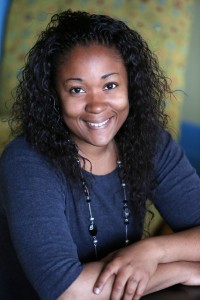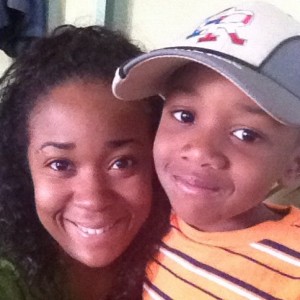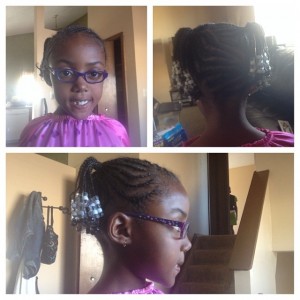We Can’t Afford to Hate: A Conclusion to the “Love as a Radical Act” Forum
“Darnell, I don’t know if I can do this.”
It was July 13. The Zimmerman verdict had just been read. Not guilty. My heart, body, and mind swelled with anger, hate, sadness, confusion, frustration, and despair. I felt defeated. I cried throughout the rest of the night. Our “Love as a Radical Act” forum submission deadline was less than a month away, and I was no longer sure that love was the answer for anything. Love felt lost forever. How could I help Darnell edit a forum that I no longer believed in?
I thought about my son. He is one of the sweetest kids I’ve ever had the pleasure of knowing. He’s giving and thoughtful. He makes his bed and cleans his room without having to be asked. He makes us breakfast and offers to clean the kitchen even when it’s not his turn. He feels sad whenever his little sister is being disciplined. He shares with his friends. And after that verdict, I thought, “I don’t know if we can keep raising this boy to be as kind and loving as he is. He’s a young black boy living in the United States. He could be shot dead just for walking down the street.” I thought about shedding my feminist skin and raising my son to be hypermasculine and hard. I didn’t want him to become the next Trayvon Martin.
But deep down inside, I knew that wasn’t healthy. Martin Luther King, Jr. warned us, “We must not become that which we despise,” and I knew I didn’t want to become George Zimmerman or the attorney that defended him or the jury that acquitted him. But I had to do something with those feelings. I didn’t want to ignore them, and I didn’t want to continue engaging them in ways that were detrimental to my spirit and the spiritual health of my family. So, I turned to Audre Lorde. In “The Uses of Anger,” she writes,
Every woman has a well-stocked arsenal of anger potentially useful against those oppressions, personal and institutional, which brought that anger into being. Focused with precision it can become a powerful source of energy serving progress and change. And when I speak of change, I do not mean a simple switch of positions or a temporary lessening of tensions, nor the ability to smile or feel good. I am speaking of a basic and radical alteration in all those assumptions underlining our lives.
It was at that moment—after rereading this essay—that I realized our “Love as a Radical Act” forum was the answer. I realized that love—for ourselves and for each other— is still the answer. A world in which black and brown bodies are in constant danger is a world that requires us to hate. We can’t afford to hate. If I am to give my children a world that is healthier than the one given to me, I must find a way to love my way through to progress and change.
The essays, poems, visual art, and Love Notes we published this week are only the beginning. This is not the end. It cannot be the end. We must continue, as my dear brother Darnell suggests, to ask: “What models do we have for the kind of love that is conducive to feminist and womanist ontologies and epistemologies? How might we reimagine these models in order to reflect contemporary concerns? What existing forces pose the most concerning challenges for feminist and womanist love for self, others, and community? How might we effectively resist these challenges?” Admittedly, there have been times throughout this forum that I have wondered how this kind of love—this progressive, radical love—looks and feels. There have been times when I was sure I was getting it right and times when I knew I was getting it wrong. But I know that’s okay. I know that love is a lifelong project that requires a lot of time, energy, and mistakes.
I was reminded of this last week when comedian Sheryl Underwood, co-host of CBS’ The Talk, referred to “afro hair” as “nappy, beaded [and] nasty.” During the same week, 7-year-old Tiana Parker was sent home from the Deborah Brown Community School in Tulsa, OK, because school policy claims that “hairstyles such as dreadlocks, afros, mohawks, and other faddish styles are unacceptable.” Tiana—who wears beautifully coiffed dreadlocks—was devastated, crying, “They didn’t like my dreads. I think that they should let me have my dreads.” Another punch to the gut. Another reminder that the struggle is not yet—and may never be—over.
Still, I was also reminded of something else—that our work, our work that is full of love and light, is not in vain. In response to the events of last week, my dear sister Dr. Yaba Blay created “A Care Package for Tiana: Locs of Love,” a digital book of pictures and messages from over 100 women and girls all over the world who wear their hair in locs and “want Tiana to know that she and her hair are PERFECT.” She sent the care package to Tiana, as well as the officials at the Deborah Brown Community School and Langston University, a historically Black university through which the former is chartered. Additionally, Kurly Klips created “We Love Tiana & Her Hair,” a Facebook affirmation group for Tiana and other black women and girls that love themselves and each other.The responses to these projects were—and continue to be—overwhelming. The care package has been viewed nearly 7,000 times, and was featured in Jet and Clutch magazines. The Parker family was so thankful to everyone who contributed to the project that Yaba was able to speak to Tiana just yesterday afternoon! And I know that Tiana is not the only little girl that needs and appreciates this kind of love and support. I am as thankful as Tiana’s family, because I, too, am raising a 7-year-old black girl that needs to know that her skin and her hair are beautiful and loved. We must remember that this is why we do the work.
That said, I implore us all to continue this conversation about radical love in our homes, our classrooms, our PTA meetings, our churches, our beauty salons, our barber shops—throughout all of our communities. We must be determined to live in a way that eliminates hate, and this requires radical love.
 Heidi R. Lewis is an Assistant Professor of Feminist & Gender Studies at Colorado College. Her teaching and research focus on feminist theory, gender and sexuality, Black Studies, Critical Media Studies, Critical Race Theory, Critical Whiteness Studies, social justice, and activism. Her essay “An Examination of the Kanye West’s Higher Education Trilogy” is featured in The Cultural Impact of Kanye West, and her article “Let Me Just Taste You: Li’l Wayne and Rap’s Politics of Cunnlingus” is forthcoming in the Journal of Popular Culture. She is currently in the process of completing articles that examine Rihanna’s “Pour It Up,” as well as FX’s The Shield. She has given talks at Kim Bevill’s Gender and the Brain Conference, the Frauenkreise Projekt in Berlin, the Educating Children of Color Summit, the Sankofa Lecture Series, the Motherhood Initiative for Research and Community Involvement, the Gender and Media Spring Convocation at Ohio University, and the Conference for Pre-Tenure Women at Purdue University, where she earned a Ph.D. in American Studies (2011) and a Graduate Certificate in Women’s Studies (2008). Heidi has also been a contributor to Mark Anthony Neal’s NewBlackMan, NPR’s “Here and Now,” KOAA news in Colorado Springs, and KRCC radio (the Southeastern Colorado NPR affiliate), and she was featured as a Racialicious “Crush of the Week.” She and her husband, Antonio, live in Colorado Springs with their two children, AJ and Chase, and their cat Max. Learn more by following Heidi on Twitter at @therealphdmommy and by visiting her FemGeniuses website.
Heidi R. Lewis is an Assistant Professor of Feminist & Gender Studies at Colorado College. Her teaching and research focus on feminist theory, gender and sexuality, Black Studies, Critical Media Studies, Critical Race Theory, Critical Whiteness Studies, social justice, and activism. Her essay “An Examination of the Kanye West’s Higher Education Trilogy” is featured in The Cultural Impact of Kanye West, and her article “Let Me Just Taste You: Li’l Wayne and Rap’s Politics of Cunnlingus” is forthcoming in the Journal of Popular Culture. She is currently in the process of completing articles that examine Rihanna’s “Pour It Up,” as well as FX’s The Shield. She has given talks at Kim Bevill’s Gender and the Brain Conference, the Frauenkreise Projekt in Berlin, the Educating Children of Color Summit, the Sankofa Lecture Series, the Motherhood Initiative for Research and Community Involvement, the Gender and Media Spring Convocation at Ohio University, and the Conference for Pre-Tenure Women at Purdue University, where she earned a Ph.D. in American Studies (2011) and a Graduate Certificate in Women’s Studies (2008). Heidi has also been a contributor to Mark Anthony Neal’s NewBlackMan, NPR’s “Here and Now,” KOAA news in Colorado Springs, and KRCC radio (the Southeastern Colorado NPR affiliate), and she was featured as a Racialicious “Crush of the Week.” She and her husband, Antonio, live in Colorado Springs with their two children, AJ and Chase, and their cat Max. Learn more by following Heidi on Twitter at @therealphdmommy and by visiting her FemGeniuses website.


!["A Care Package for Tiana: Locs of Love" [photo credit: ZIA Photography]](https://thefeministwire.com/wp-content/uploads/2013/09/A-Care-Package-for-Tiana-Locs-of-Love-300x200.jpg)




Pingback: Heidi R. Lewis on Progressive Radical Love | Black Feminists On-Line
Pingback: Daily Feminist Cheat Sheet
Pingback: Totstare-App, DJanes & Commandante Ramona « Reality Rags